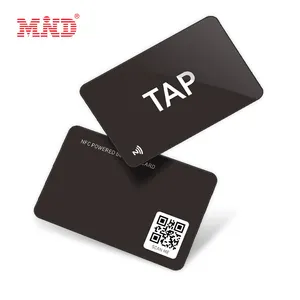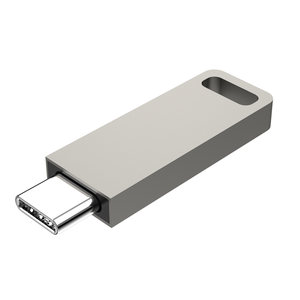
All categories
Featured selections
Trade Assurance
Buyer Central
Help Center
Get the app
Become a supplier

(720 products available)

















































A PKI card (Public Key Infrastructure) is essential for secure digital communication and transactions. It's also known as a digital certificate or an electronic certificate. This certificate uses electronic credentials, which allows people and businesses to exchange information securely and safely. The PKI card systems work hand in hand with cryptographic algorithms that help to encrypt, sign, verify, and authenticate information digitally.
This card has a common feature of containing a public and private key. The public key is usually shared with everyone, while the private key is kept secret by the owner. PKI cards come in different types, depending on the environment where they are used.
The three main functions of PKI cards are digital signatures, authentication, and encryption.
Digital signatures allow someone to sign documents electronically with a private key. This shows who the signer's identity is. It also proves that the document has not changed. Digital signatures are very important for contracts, legal papers, and certificates.
Authentication means verifying or proving someone’s identity. When a person uses a PKI card to log into a website or system, it shows they are really who they say are. The private key acts as strong proof of identity.
The encryption feature protects sensitive data. This is done by securely encryptting data with the public key. Only a person with the private key can decrypt or unlock the information. This keeps things like emails, messages, or files safe from unauthorized access.
Here are some key features of PKI cards:
Secure Key Storage
The private key is stored safely on the card. This means only the keyholder can access it. It cannot be copied or moved to another device. Also, any attempt to get the private key illegally will trigger a security response from the card.
Portability
Public key infrastructure (Pki) cards are easy to carry around because they are similar to credit cards. This makes them convenient to use when signing things digitally or proving identity in different places.
Multi-Factor Authentication (MFA)
These cards require more than one security check. This may include a PIN, password, biometrics, and having the card itself. Having multiple factors makes it harder for someone to get in without permission.
Integration with Systems
Because of its functions and features, a PKI card can be integrated easily and work well with various digital systems. These include networks, applications, and services that need strong identity verification and data protection.
Certificate Management
PKI cards help keep track of digital certificates. This includes making sure they are current, using them the right way, and looking after them all together. Digital certificates are important because they give out trust in online connections.
Organizations of all types and sizes use PKI cards in various industries for electronic signatures, secure authentication, and encrypted email to verify digital transactions and protect sensitive information. The following are the key industries that utilize pki cards:
Government Agencies
The government uses pki smart cards extensively for secure employee access to important systems, digital signatures, and protecting sensitive data. They are also used to provide essential public services such as healthcare, social security, and benefits through secure online portals.
Financial Services
Pki smart cards are essential in the finance industry for secure online banking transactions, fraud prevention, and regulatory compliance. They enable strong two-factor authentication, ensuring only authorized users can execute high-stakes transactions.
Healthcare Sector
The healthcare sector uses the PKI infrastructure cart to produce health worker ID cards for secure electronic signatures on healthcare documents, secure access to electronic health records (EHR), and prevent illnesses associated with identity theft and data breaches.
Manufacturing
In this industry, PKI cards are used to prevent unauthorized access to hazardous areas, ensuring only properly trained personnel can enter such zones. They can be used to verify access by swiping the card and using a password, or the card can be placed in a card reader.
Education Institutions
PKI smart cards are commonly used in colleges and universities to verify the identity of students and staff and grant access to online resources, libraries, and secure areas. They are used to prevent unauthorized access, ensuring only students and staff members can enter such areas.
Other industries that use PKI cards include retail, telecommunications, and transportation. Businesses that use them build trust in their digital interactions by protecting sensitive data and ensuring secure authentication.
When looking for a PKI certificate to buy, there are several factors to consider.
Target Audience
This factor defines the purpose of the PKI cards being deployed. Internal PKI is often issued by organizations for their own employees, clients, or partners. External PKI, on the other hand, is meant for customers or partners outside the organization.
Volume and Scalability
Organizations that plan to issue a large number of digital certificates need to choose a PKI provider that can handle high volumes efficiently and offer a scalable solution that meets their growing needs.
Deployment and Integration
When choosing a PKI card, businesses should also factor ten integrated systems and applications deployment within the organization that requires integration with PKI, such as identity and access management solutions, virtual private network (VPN) systems, and other security-centric technologies.
Customization and Flexibility
Organizations may have specific requirements and use cases for the PKI card. Customization allows businesses to tailor the digital certificates to meet their unique needs, such as defining custom attributes, incorporating specific branding elements, or configuring certificate policies that align with their organizational guidelines.
Compliance and Regulatory Requirements
When choosing PKI solutions, businesses must consider compliance and regulatory requirements relevant to their industry. Certain industries, like healthcare (HIPAA compliance), finance (GLBA compliance), and government (FISMA compliance), have specific regulations that govern the use of cryptographic certificates and data security measures.
Support and Maintenance
Support and maintenance is a critical aspect of PKI card management. Organizations should evaluate the level of support provided by the PKI provider, including response times for support issues, escalation procedures, and access to technical expertise.
Cost
Cost is an important consideration when choosing a PKI provider. Organizations should evaluate the pricing. PKI solutions are often charged based on the number of certificates issued, and organizations should carefully assess their needs and select a pricing model that aligns with their budget.
Q: How can a PKI card benefit my organization?
A: A PKI card can improve security, enabling strong authentication, and allowing encrypted communication and digital signatures. It also helps meet regulatory requirements.
Q: How often should I renew my digital certificates?
A: Certificate renewal depends on the organization's policies and the certificates' expiration dates. Typically, renewals occur annually or biannually.
Q: Can I use a single PKI card for multiple applications?
A: Yes. PKI cards allow users to use one card for different purposes, such as signing emails, encrypting files, and authenticating to networks.
Q: How should I store and handle my PKI cards?
A: Keep the cards in a secure and safe place. Avoid exposing them to extreme temperatures or physical damage. Also, handle them properly and avoid touching the card's surface.
Q: What is the difference between a PKI card and an smart card?
A: A public key infrastructure (PKI) card is usually a smart card that stores the user's digital certificates. It can provide secure authentication and access control.